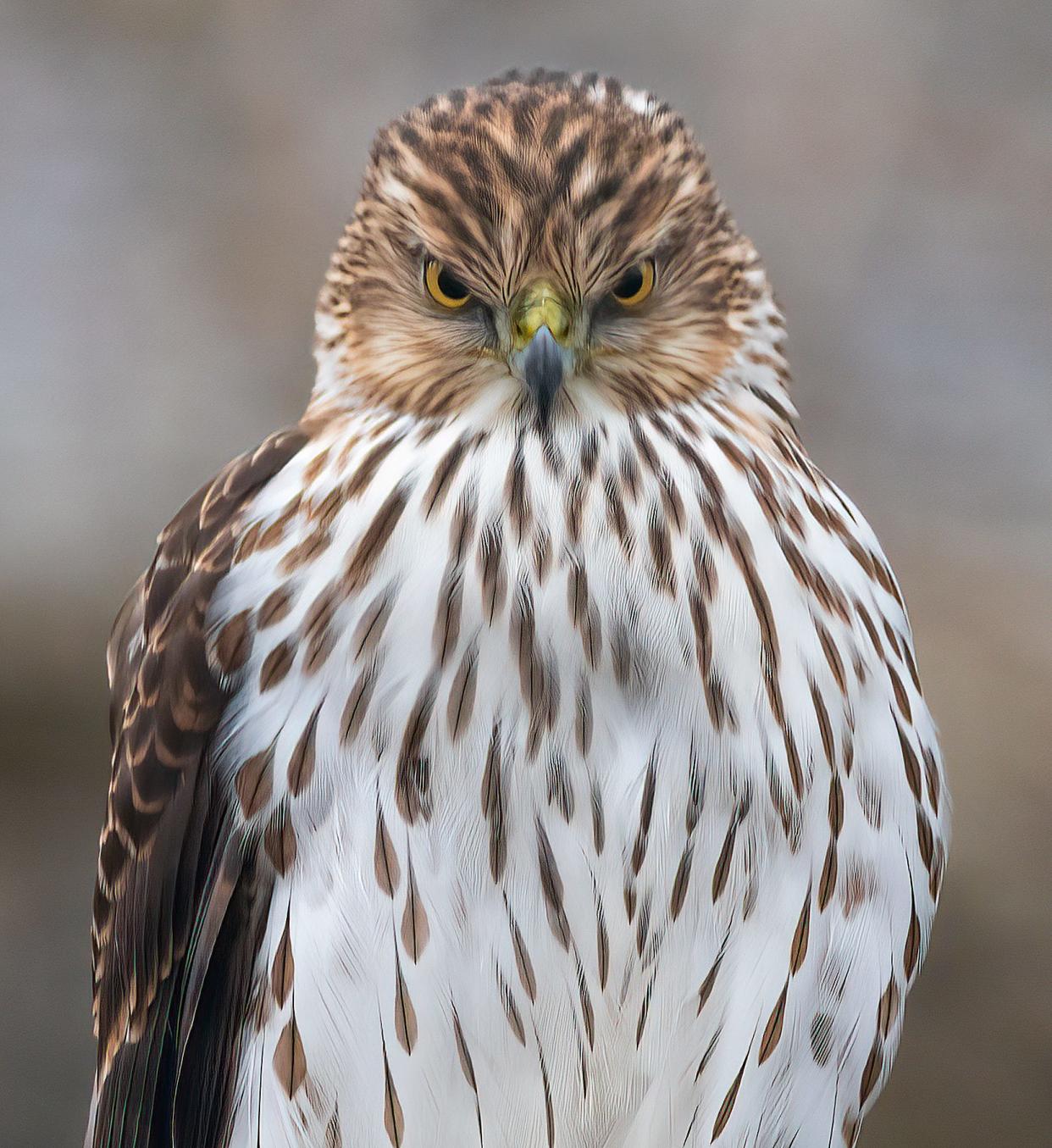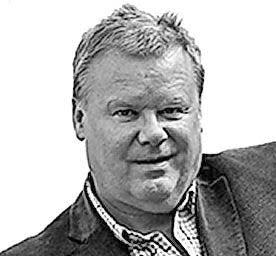Nature/Opinion: American Ornithological Society set to rename honorific birds

The little-known U.S.-based American Ornithological Society (AOS) managed to make news on Nov. 1, 2023. That day, the 2,800-member academic organization announced that it would be changing all honorific names of birds in the Americas. That includes North, Central and South America, and associated islands. In all, the plan involves about 150 species. The AOS (formerly American Ornithological Union) is the long-standing authority for American bird names. A precise timetable for the changes has yet to be established.
In the U.S. and Canada, about 80 species are slated for rebranding, and 35 of them occur — or have occurred — in Ohio. Buckeye State birds include well-known species such as Bonaparte’s gull, Cooper’s hawk, Wilson’s snipe, and — in a double whammy to Wilson — Wilson’s warbler. In all, 35 honorifically named species on the Ohio list, or about 8% of the state list of 445 species, will be renamed.
More: Nature: Predatory loggerhead shrikes no longer common in the Buckeye State
Why the change? In the words of the AOS: “The AOS commits to changing all English-language names of birds within its geographic jurisdiction that are named directly after people (eponyms), along with other names deemed offensive and exclusionary…”
A group known as Bird Names for Birds was the impetus for the AOS nomenclatural shift, and they state: “Eponyms… and honorific common bird names are problematic because they perpetuate colonialism and the racism associated with it. The names that these birds currently have — for example, Bachman’s sparrow — represent and remember people (mainly white men) who often have objectively horrible pasts and do not uphold the morals and standards the bird community should memorialize.”
There are two major prongs to this movement: 1) Honorees are racist or otherwise bad people, therefore their names are exclusionary, and 2) bird names should be descriptive of the bird.

A major problem with No. 1 is that most people associated with eponymous bird names were not racist, or at least the AOS has not presented many cases for it. The idea seems to be to cast them all out — a wholesale purge of eponyms, ensuring the bad are deleted, even if the good are collateral damage. This decision was rendered by a committee of 19 people. That would be the AOS council, who did not poll birders at large, people in other countries that would be impacted, or even their own membership. In other words, the council was exclusionary.
This clumsy effort to rewrite history is fraught with problems. The aforementioned Alexander Wilson — namesake to the snipe, warbler and three other species — was a passionate ornithologist who lived for birds. He essentially worked himself to death by the age of 47 but not before becoming known as the Father of American Ornithology.
The reverend John Bachman — mentioned above — illustrates the problems of judging people by the standards of two centuries later. While Bachman owned slaves, which should never have been acceptable even in his day but unfortunately was, paradoxically he also was a leader in creating opportunities for Black people. Bachman invited people of color to join his congregation, which many did, and helped Blacks achieve positions that were unattainable at that time. One of his tutees was Daniel Payne, who went on to become a founder of Wilberforce University in Ohio, and became one of its first presidents — the first Black college president in the United States.
The idea that honorific bird names are exclusionary is nonsensical. A leading advocate for changing eponymous bird names is field guide author Kenn Kaufman. Ironically, he wrote the following in a post supporting the eponym purge on his eponymously named Kaufman Field Guide blog: “Do eponymous names naturally lead to curiosity about the persons so recognized? I don’t think so. If we were to poll the ornithologists and serious birders of North America, I suspect that not one in a thousand would know who Botteri was (of Botteri’s Sparrow) or who Williamson was (of Williamson’s Sapsucker)… All these names have been there in the field guides and other books for many years, but hardly anyone has been inspired to say, ‘Gee, who was Heermann? Who was Hutton?’”
If no one knows who these people are, how can their names be exclusionary?
More: A spider that can catch fish? It's true. Find out more about the species in Ohio
The other argument in favor of changing honorific names centers on the opportunity to provide more descriptive names. That opens a robust can of worms. Many non-eponymous names are hardly descriptive. Who knows what mallard means? Or sees the hairs on a hairy woodpecker. Few have seen the “red belly” on a red-bellied woodpecker. Carolina chickadee? They’re common in Ohio. Purple finches are hardly purple. All sparrows sing, not just the song sparrow. Do all these and scores of other non-descriptive names also have to be changed? And re-namers best be cautious. An oft-proposed alternate name for Kirtland’s warbler (named for Ohio naturalist Jared Kirtland) is jack pine warbler. Jack pine’s scientific name is Pinus banksiana. The specific epithet honors English naturalist Sir Joseph Banks. Dig deep enough into his history, and flaws will be found. As I’m sure historians in 2224 will find character defects in many of us.
One huge asset that ornithology has that very few other disciplines in the natural sciences have is a stable system of English names. English bird names are the currency of the masses (in English-speaking places). They allow all of us to speak on the same page, and greatly facilitate learning by newcomers. Furthermore, English names tend to be far more stable than scientific names (which very few birders know). Of the 38 species of breeding warblers in eastern North America (five are eponymously named), 33 still have the same English name as first published in the AOS’s inaugural checklist of North American birds in 1886 (including all five eponyms). Contrarily, 138 years later 31 of those 38 warblers have different scientific names. A large-scale change in English names will result in years of confusion, outdated field guides, and numerous other long-lasting hassles.
Resistance to the proposed AOS name changes has been widespread and opponents probably greatly outnumber proponents. To me and many others, the logic behind purging eponyms is largely baseless — at least its advocates have failed to make much of a case. The logic behind arguments for retaining existing names makes far more sense and maintains long-established stability.
Honorific names permeate science, and elsewhere. Legions of buildings, cities and towns, endowments and scholarships, streets, and much more are named honorifically. If truly bad names exist within these groups, change them as needed. But a blanket purge of honorific bird names by a tiny group of people in one area of the globe — whose changes are unlikely to be widely accepted — smacks of pretentious virtue signaling by out of touch elitists.
To learn more about rationales for changing bird names, visit the AOS website: English Bird Names Project - American Ornithological Society (americanornithology.org). For dissenting opinions, including some from leading ornithologists, visit the Change.org petition to AOS leadership.
Naturalist Jim McCormac writes a column for The Dispatch on the first, third and fifth Sundays of the month. He also writes about nature at www.jimmccormac.blogspot.com.
This article originally appeared on The Columbus Dispatch: Is renaming of honorific birds necessary? Our columnist doesn't think so

